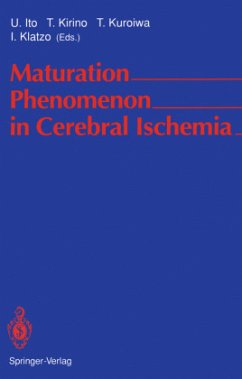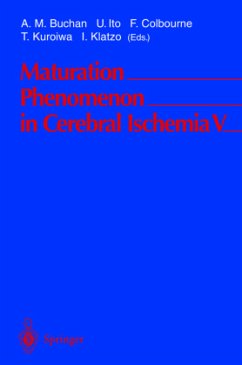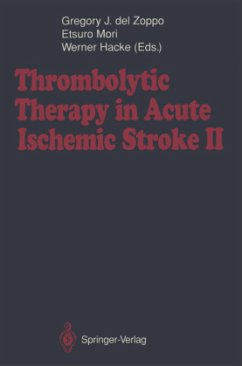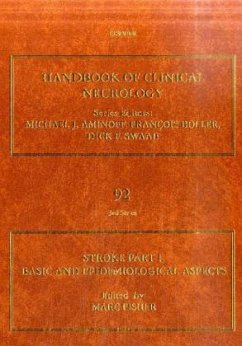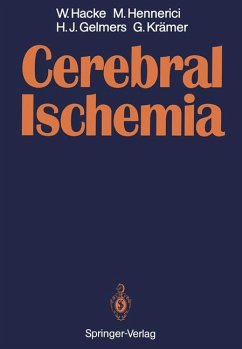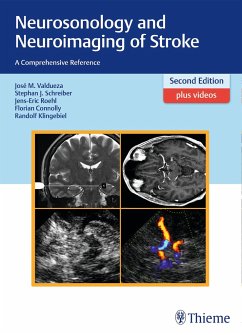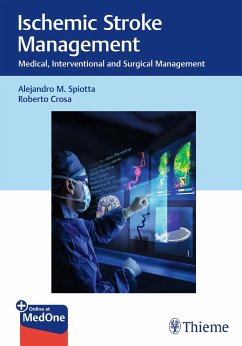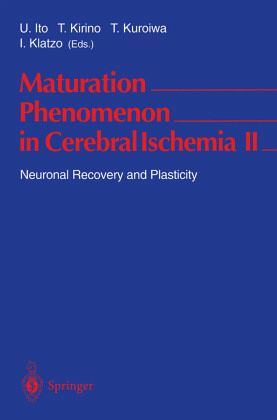
Maturation Phenomenon in Cerebral Ischemia II
Neuronal Recovery and Plasticity
Herausgegeben von Ito, Umeo; Kirino, Takaaki; Kuroiwa, Toshihiko; Klatzo, Igor

PAYBACK Punkte
39 °P sammeln!
Many nerve cells of the brain which are not killed outright may suffer delayed death or recovery after ischemic insult. This fact has led to the concept of "maturation phenomenon" of neuronal injuries. Since the 1st International Symposium on Maturation Phenomenon in 1990, new developments, particularly in molecular biology, have been rapidly bringing new information about molecular nature and mechanisms of cell death. This book contains the presentations of the 2nd International Symposium held in Tokyo in April 1996. The latest developments in maturation phenomenon and the present status of i...
Many nerve cells of the brain which are not killed outright may suffer delayed death or recovery after ischemic insult. This fact has led to the concept of "maturation phenomenon" of neuronal injuries. Since the 1st International Symposium on Maturation Phenomenon in 1990, new developments, particularly in molecular biology, have been rapidly bringing new information about molecular nature and mechanisms of cell death. This book contains the presentations of the 2nd International Symposium held in Tokyo in April 1996. The latest developments in maturation phenomenon and the present status of investigation are described and further stimulation of research in this field is provided.



